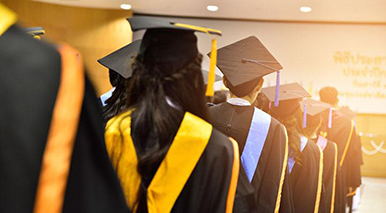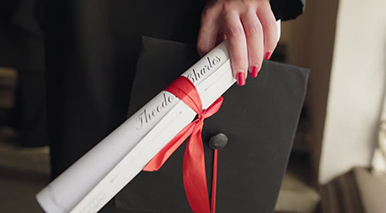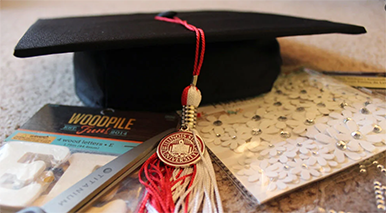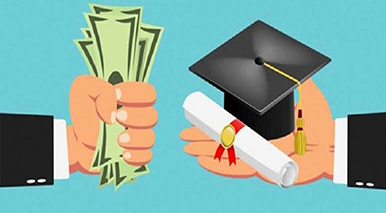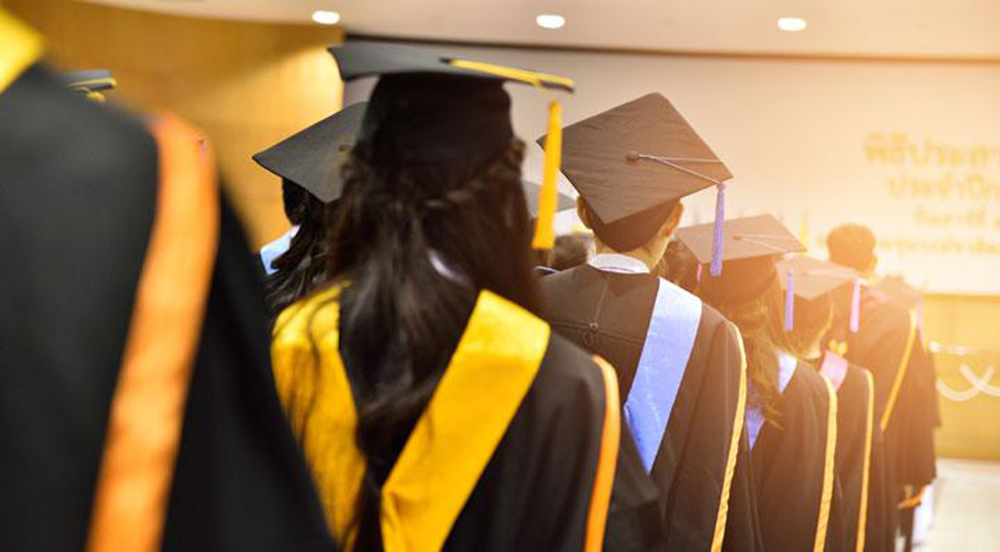
In an increasingly competitive world where qualifications are the key to unlocking career opportunities and personal advancement, the temptation to cut corners by using fake diplomas can seem appealing to some. Whether it’s out of desperation, fear of missing out, or frustration with formal educational system, faking a diploma offers the illusion of instant success. However, the reality is that it rarely—if ever—results in long-term benefits.
Choosing between investing in a real education and resorting to forgery is about more than just the credentials you acquire. It reflects your values, your respect for ethical boundaries, and your commitment to growing into a capable professional. While a fake diploma may promise short-term gains, the risks it comes with—legal troubles, reputational ruin, and lack of personal fulfillment—far outweigh any perceived advantages.
In this blog, we’ll explore the fundamental differences between fake diplomas and real education, as well as why cheating never pays off in the end. We’ll highlight the consequences of forgery, the benefits of earning genuine credentials, and alternative paths to success that preserve your integrity while fostering long-term growth.
The Allure of Fake Diplomas
Fake diplomas are often marketed as solutions for people facing limitations in career, education, or social respect. They are typically sold by unauthorized companies claiming to provide “nearly identical” documents to actual education certificates. Below are some common reasons people are drawn to fake diplomas:
1. Meeting Job Requirements Quickly
In certain jobs, having a college degree or a high school diploma may be non-negotiable—even for entry-level positions. Those without the required qualifications might see a fake diploma as the only way to land a job.
2. Saving Time and Effort
Real education demands years of dedication, study, and continuous improvement. Some people see counterfeit certificates as a “shortcut” to success without investing the necessary effort or time.
3. Social Pressure
Feeling left behind by friends, family, or peers who’ve achieved formal educational milestones can make some people resort to fake diplomas as a way to “keep up appearances.”
4. Cost Challenges
Traditional education can be expensive, especially in regions without public access to affordable schooling. This financial strain sometimes nudges people toward cheaper yet unethical options like fake diplomas.
While these motivations may seem understandable in the moment, they ignore the long-term repercussions of cheating—and fail to recognize the myriad legitimate paths available for personal and professional growth.
The Consequences of Using Fake Diplomas
Resorting to fake diplomas rather than earning a legitimate education comes with significant risks. These consequences can be professional, legal, and deeply personal.
1. Legal Penalties
In many countries, using fake educational documents is considered fraud. Being caught can result in fines, lawsuits, or even imprisonment depending on the severity of the deception. Beyond the legal punishment, a criminal record can tarnish your reputation permanently, making it difficult to rebuild your professional and personal life.
2. Reputational Damage
Once exposed, a forged diploma can destroy your credibility in the workplace and within professional networks. Colleagues, employers, and even friends may lose trust in you, and this loss of reputation can be nearly impossible to recover from.
3. Job Loss
Employers typically conduct background checks, and even if you manage to land a role using a fake diploma, you could face termination once your forgery is uncovered. Losing a job due to dishonesty can prevent you from accessing future opportunities, especially in the same field.
4. Lack of Skills and Knowledge
Unlike real education, fake credentials don’t equip you with the knowledge, skills, or expertise required to succeed. If given tasks or responsibilities that you’re unprepared for, it can quickly become apparent to employers and colleagues that your qualifications were forged.
5. Ethical Fallout
Cheating erodes your own sense of integrity and ethical grounding. The guilt or sense of inadequacy that accompanies dishonesty can weigh heavily on a person’s mental well-being, affecting confidence and self-perception.
Taken together, the risks of cheating far outweigh any perceived “shortcut” it might provide. Genuine education and self-improvement are the true paths toward sustainable success.
Why Real Education Always Wins
The contrast between fake diplomas and real education couldn’t be starker. Real education isn’t just about earning a certificate—it’s about acquiring knowledge, developing skills, growing as a person, and opening doors for lifelong opportunities. Here’s why real education always wins:
1. Knowledge and Expertise
A real education helps you develop in-depth expertise and understanding in your chosen field. It trains you to think critically, solve problems, and innovate. These traits become invaluable assets in any professional setting.
2. Credibility
Having legitimate qualifications means your credentials can be verified and trusted. Employers value authenticity and will trust your capabilities when your background checks out.
3. Growth Mindset
The process of earning a degree or diploma fosters a growth mindset. The challenges, mistakes, and triumphs along the way help build resilience, adaptability, and personal strength—traits that no fake diploma can replicate.
4. Career Opportunities
Employers prioritize candidates with genuine credentials because they reflect not just qualifications but dedication and effort. With a credible education, you can explore career paths in nearly every industry.
5. Personal Fulfillment
One of the greatest joys of achieving a real education is the sense of pride and accomplishment it brings. Knowing that you’ve earned your diploma or degree through hard work boosts confidence and validates your efforts.
Beyond Diplomas: Success Without Cheating
Not everyone follows a linear path to success, and that’s perfectly okay. There are alternatives for those who may feel that a traditional diploma isn’t accessible right now—or doesn’t align with their personal circumstances. What matters is avoiding unethical shortcuts and embracing authentic pathways to education and career advancement.
1. High School Equivalency Tests
Programs like the GED, HiSET, or TASC offer widely recognized equivalencies to high school diplomas. These tests focus on practical knowledge and can open doors just like a traditional high school diploma.
2. Online Learning
Online high schools, massive open online courses (MOOCs), and online certifications provide flexible, affordable learning opportunities. Many platforms even offer diplomas or certifications that are legitimate and verifiable.
3. Vocational Training
Trade schools and vocational programs focus on providing practical, in-demand skills in areas like construction, cosmetology, culinary arts, automotive repair, and more. These programs often lead to direct job placement without necessarily requiring a diploma.
4. Apprenticeships and Internships
Gaining hands-on experiences through apprenticeships or internships builds real-world knowledge and industry connections, helping you demonstrate your skills without a diploma.
5. Focus on Skills and Certifications
Fields like technology, marketing, and creative industries often prioritize demonstrable abilities over formal education. Investing in certifications and building a portfolio can help you stand out.
6. Adult Education Classes
For those returning to complete traditional schooling, adult education programs provide accessible pathways to earning a legitimate diploma, regardless of age or circumstance.
7. Entrepreneurship
Creating your own business or starting freelance work allows you to showcase your dedication, creativity, and passion without needing formal qualifications. Entrepreneurs stand out for their self-discipline and problem-solving abilities.
These alternatives allow you to honestly pursue education and career growth without compromising who you are.
Cheating vs. Growth: A Matter of Ethics
Resorting to fake diplomas isn’t just about skipping effort—it’s about compromising your ethics and integrity. While no path to success is easy, those built on honesty and perseverance are always worth the journey. Cheating undermines your ability to:
- Build Confidence:Knowing you succeeded by overcoming challenges boosts self-esteem.
- Forge Relationships:Trust is the foundation of professional networks, and dishonesty erodes it.
- Make an Impact:Genuine effort leads to meaningful contributions to your field, society, and future generations.
Ethical paths ensure that your success is something you can proudly share, and they preserve your standing as both a capable professional and an upstanding citizen.
Conclusion
The choice between fake diplomas and real education reflects more than an individual’s circumstances—it reveals their values, integrity, and long-term priorities. While fake diplomas might seem like a shortcut to career advancement or social validation, they come with steep consequences, including legal trouble, ruined reputations, and missed opportunities.
On the other hand, real education fosters genuine growth, skills, and credibility, opening doors to success you can sustain throughout your life. For those discouraged by traditional education systems, there’s a wealth of alternatives—such as equivalency exams, online courses, vocational training, and apprenticeships—that provide honest paths to success.
Cheating never pays. Hard work, perseverance, and integrity are the cornerstones of any meaningful accomplishment. By embracing real education and authentic growth, you not only achieve your goals but also set yourself up for a future rich in opportunity, pride, and fulfillment.

